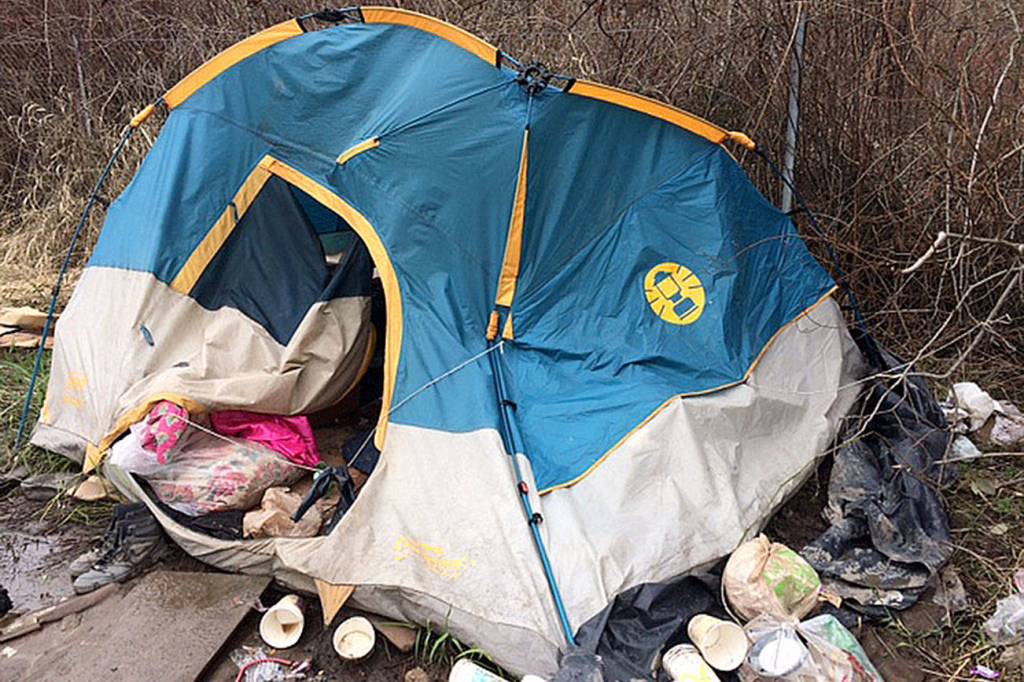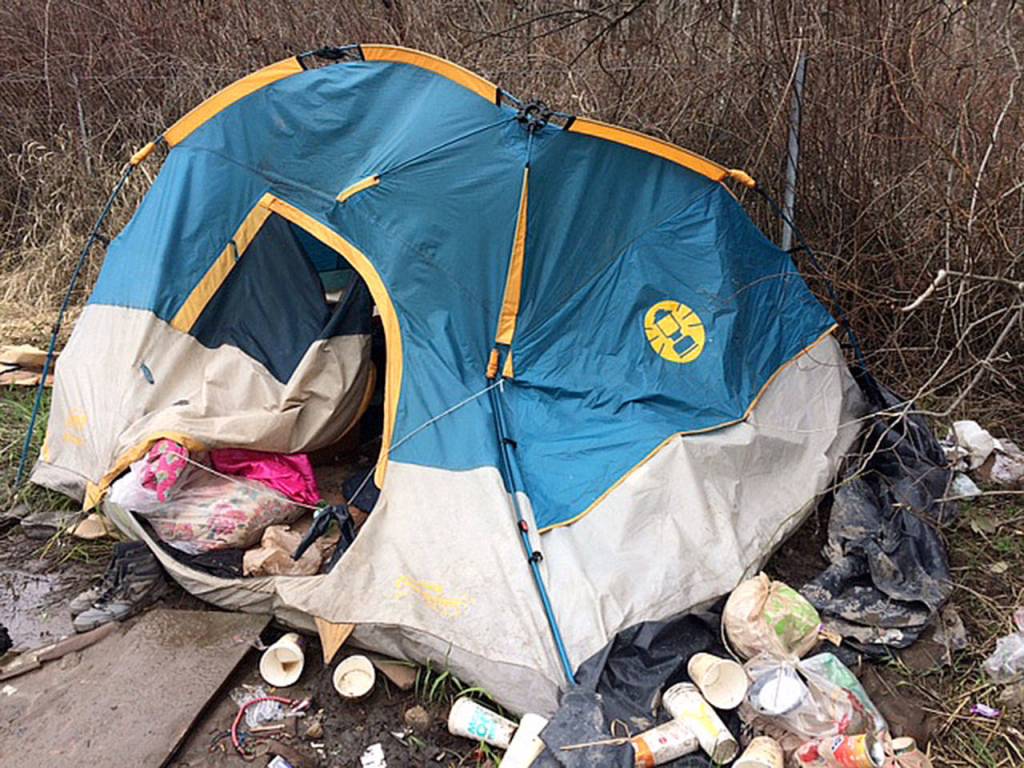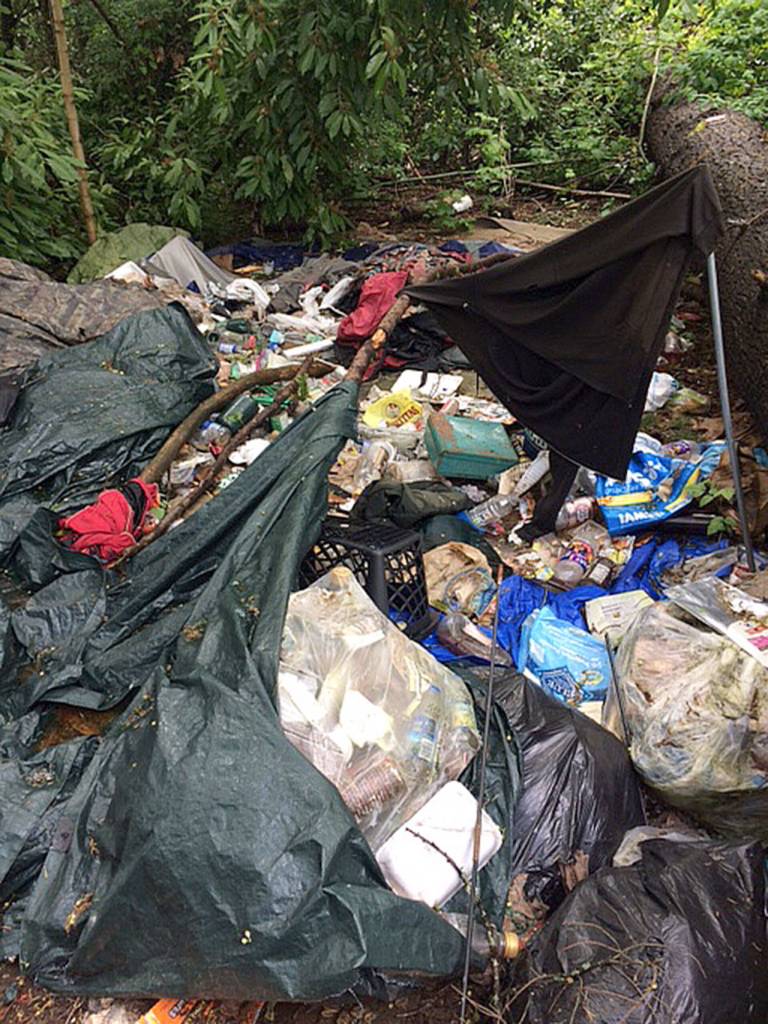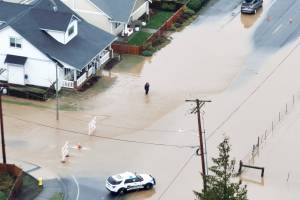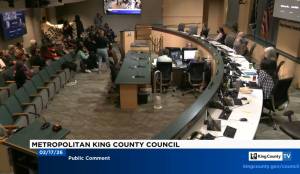Bellevue camping ban leaves loophole for homeless encampments
Published 4:14 pm Friday, December 1, 2017



The Bellevue City Council recently voted to extend a ban on camping within city limits, a law that targets homeless encampments.
But one Bellevue resident takes issue with the ordinance.
Instead of extending a camping ban on city-owned property – the ordinance’s intent – Robert Zeinemann argues a section in the ordinance actually relaxes the laws.
On Nov. 20, the Bellevue City Council passed Ordinance 6385, which replaces the city’s overnight camping law by extending the camping ban from parks to all non-residential public property. This includes streets, sidewalks, city parks, public parks or “other open areas where the city or governmental agency has a property interest, to include easements” anytime between sunset and sunrise. It is a misdemeanor for those who break the law.
However, Zeinemann says the ordinance is misleading because of a specific section.
Section E states, “A person is not guilty of unlawful public camping if, at the time the person is on public property, there is no available overnight shelter. ‘Available overnight shelter’ means a public or private shelter, with available overnight space, open to individuals experiencing homelessness, at not charge. If the person is unable to utilize an available overnight shelter due to voluntary actions such as intoxication, drug use, unruly or assaultive behavior, or violation of shelter rules, the overnight shelter space shall still be considered available for the purpose of this section.”
“The new ‘ban’ on overnight shelter camping is in fact not a ban at all for homeless persons when shelter is not available,” Zeinemann said.
“The new law does not define where shelter space must be available, but a reasonable interpretation is that it means shelter space in Bellevue. Though I don’t know the details of how often shelter space is not available for homeless persons in Bellevue, I assume it is often – why else would there be a need for a new large shelter in Eastgate?”
Shelter availability
City staff said the reference to available shelter does include shelters throughout King County. Yet, finding available shelter in Bellevue may not even be a problem.
Through interviews with the Reporter, two Eastside shelter organizers said they still have room for more.
Cynthia Brown, the director for emergency services with The Sophia Way, said their emergency winter shelter has a maximum capacity of 50 beds but their average nightly count hovers at around 25 single women utilizing their services, which includes a hot dinner, breakfast and two bus tickets with each visit.
“A lot of people have negative experiences in a shelter,” Brown said when asked why the shelter isn’t full each night.
Because their rules exclude pets, partners and possessions, Brown thinks some may be turned off to staying in a shelter. Also, Brown describes the population at The Sophia Way winter shelter as challenging.
“This season, we’re seeing a lot more vulnerable individuals with mental health and substance abuse [issues],” she said.
The Sophia Way’s emergency winter shelter opened Oct. 15 and will close May 15 but not before it moves from its Kirkland location to Holy Cross Luterhan church in Factoria on Feb. 1.
The Reporter reached out to Congregations for the Homeless multiple times to understand what their shelter use was but received no reply.
Mayor John Stokes did point out there are shelter options for men year-round to varying degrees and the city is in the process of siting a permanent location for the current temporary shelter to increase availability.
“We are also working on our newly adopted Affordable Housing Strategy to address systemic homelessness and lessen th eneed for men to find temporary shelter,” he said.
While The Sophia Way only serves single women, Catholic Community Services provides shelter for families, single mothers with children and single fathers with children. Their average count is 30 a night at their Eastside Winter Shelter and they, too, can take up to 50 for walk-ins or for those coming who are picked up by the police.
Whitley Tucker, a program director for Catholic Community Services, said the shelter’s use tends to increase in January and February, however, they did see an unexpected increase in the summer. Through a special grant, 2017 was the first year they were able to keep the shelter open year-round.
Cynthia McGee, the community-based shelter manager for Catholic Community Services’ Eastside Winter Shelter, said transportation can be an issue for many experiencing homelessness and shelter availability on the Eastside is too far of a trip.
“It can be the location,” she said. “I get lots of calls every day and when I say Redmond, Kirkland or St. Peters United Methodist [in Bellevue], they’re looking for a place more centrally located to their work space, close to school or appointments.”
Homelessness on the Eastside has increased, however.
According to the King County-led Count Us In data, in 2017 there were 284 unsheltered people on the Eastside, which is up from 2016’s One Night Count of 245. Count Us In is part of King County’s All Home Initiative.
The city recommended council adopt the camping ordinance as part of the broader work the city has done throughout the last year in addressing homelessness on the Eastside. In their three-pronged approach, they’ve invested in facilities, services and through human services.
Prior to the new ordinance, the city had relied on trespass provisions for unlawful encampments outside of city parks. When an encampment was identified, police officers and an outreach worker will speak to the individual, make sure they’re safe and in good health, and then extend an offer to find space at a shelter. The city recently started distributing resource cards that have the contact information for available shelters on the Eastside as well as the phone number “211,” which has a database of shelters in the King County area. Law enforcement also utilizes 211 to determine whether a homeless encampment is unlawful, per section E.
According to police spokesman officer Seth Tyler, from January to August of 2017, the Bellevue Police Department has given seven trespass notices to unauthorized campers, three of which have been served, and has cleaned up 24 encampments with Washington State Department of Transportation on public property.
Legal?
As for section E of the ordinance, the city decided to add the provision after a discussion with the city’s chief prosecutor on Oct. 23.
City spokeswoman Lenka Wright said the city attorney’s office primarily reviewed recent federal case law, including the Jones v. City of Los Angeles and Bell v. City of Boise cases, before making the recommendation.
The two cases address whether it’s legal for individuals to sleep on public land and considers the Eighth Amendment, which prohibits cruel and unusual punishments.
“It’s essentially saying our actions as a city – we recognize you cannot criminalize homelessness,” she said.
Zeinemann doesn’t buy it.
An attorney himself, he says the Jones v. City of Los Angeles ruling was vacated and Bell v. City of Boise “does not appear to be binding case law” and was dismissed in 2015.
“This whole situation is astonishing,” Zeinemann said. “Maybe city staff got the case law referenced and legal reasoning from advocates for the homeless and accepted it all without due diligence.”
Kate Berens, the deputy city manager for the city of Bellevue, said the city attorney’s office will typically deliver an analysis on what’s prudent and what would help the city reduce their risk of challenge, which went into the city’s recommendation.
“Because, really, at the end of the day, we’re trying to put in place a framework that works for Bellevue to sort of be that right balance of compassionate care and maintaining publicly owned property for the enjoyment of everybody,” she said.
Stokes said he voted for the camping ordinance for the same reason.
“… it reflects a compassionate yet balanced approach for homelessness,” he said. “The new legal language included in the ordinance clarifies the city’s existing enforcement practice while maintaining Bellevue’s quality of life.”
Transparency
Zeinemann said he simply wants to see “good governance” with everyone knowing the effect and reasons behind the city’s policy choices. He felt the ordinance lacked transparency because the council’s memorandum on the ordinance doesn’t mention the city would no longer consider it unlawful camping if all the shelters were full. Instead, it’s marketed as an extended ban.
“The new ‘ban’ on overnight camping is in fact not a ban at all for homeless persons when shelter is not available,” he said. “That is a significant policy change that should have been addressed in the staff memorandum, and brought to light during the Nov. 20 City Council meeting.”
Wright said the camping ordinance has come up in multiple council meetings including a meeting in April, on June 5, Oct. 9 and Oct. 23. The Oct. 23 meeting specifically addressed section E, she added. And those meetings were not only public but broadcast online.
The Reporter reached out to the Bellevue City Council members to learn why they voted for the ordinance, however, none of them replied.

